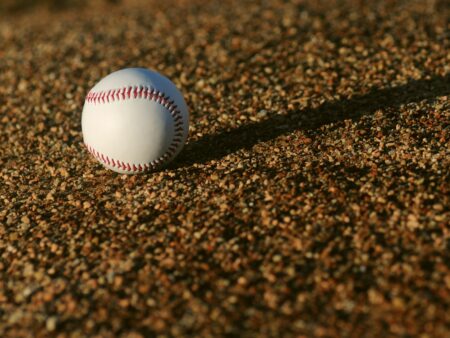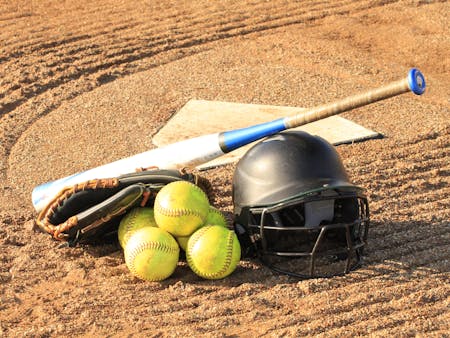When I think of baseball hotspots, Louisville always comes to mind. It’s not just the crack of the bat or the roar of the crowd that gets me; it’s the city’s rich history in America’s favorite pastime that truly captivates. From the legendary Louisville Slugger to today’s rising stars, this town knows batting like few others.
Louisville Batting: Past, Present, and Future of Slugger Greats
When I think of baseball hotspots, Louisville always comes to mind. It’s not just the crack of the bat or the roar of the crowd that gets me; it’s the city’s rich history in America’s favorite pastime that truly captivates. From the legendary Louisville Slugger to today’s rising stars, this town knows batting like few others.
History of Baseball in Louisville
From its early beginnings, Louisville has been a pivotal city in the development of baseball. The game’s roots here reach back to the 19th century when local amateurs swung handmade bats. This love for baseball quickly grew, leading to Louisville establishing itself as a prominent player on the national scene.
In 1876, Louisville Grays became one of the first professional baseball teams, marking an important milestone in the city’s baseball journey. The Grays’ entry into the National League set the stage for a longstanding tradition of competitive play in Louisville. Over the years, numerous players from this region have left indelible marks on the game, further cementing Louisville’s reputation in baseball history.
The Louisville Colonels, successors to the Grays, brought in the next era of the sport to the city. During their tenure in the major leagues, the Colonels not only entertained locals but also contributed several innovations to the sport. Perhaps the most significant detail was the Louisville Slugger, born here and now synonymous with baseball equipment worldwide.
My research uncovers that Louisville’s Minor League team, the Louisville Bats, continues the city’s baseball legacy today, mirroring the deep connection the community holds with the sport. These professional athletes carry forward the tradition of dedication and skill that has been a hallmark of Louisville baseball throughout the generations.
Discovering the evolution of baseball in Louisville is like peeling back the layers of American sports culture. Each decade adds a new chapter to the city’s ongoing narrative with the game. From the handcrafted tools of the trade to the cutting-edge bats and gear of modern times, Louisville remains at the heart of America’s baseball innovation and expertise.
The Legendary Louisville Slugger
When you mention Louisville batting, one iconic name stands out: the Louisville Slugger. This legendary bat isn’t just a piece of sports equipment; it’s a symbol of baseball history, deeply entrenched in the hearts and hands of players for generations. The story of the Slugger began in 1884, a serendipitous event that would forever change the landscape of the game. Bud Hillerich, a young woodworking apprentice, crafted the distinct bat for Pete Browning, an iconic Louisville Colonels player also known as “The Louisville Slugger.”
Browning’s success with the bat propelled Hillerich’s creation to the forefront of baseball culture. What started as a family-owned business, Hillerich & Bradsby Co., evolved into an institution that’s synonymous with America’s pastime. To this day, the company maintains its leading edge through continuous innovation, marrying tradition with technology to provide the best possible equipment for players at all levels.
The bats aren’t just pieces of lumber carved and polished to perfection; they represent a customization level unparalleled in the world of sports manufacturing. With specialization catering to the unique preferences of each player, from the bat’s weight to its grip, Louisville Sluggers are tailored to enhance the performance of ballplayers worldwide.
The craftsmanship of the Louisville Slugger has not gone unnoticed. It’s become the go-to choice for numerous Hall of Famers and modern-day champions. The bat’s prestige is echoed in the Louisville Slugger Museum & Factory, a shrine to the history and influence of this extraordinary brand. Here, visitors can witness firsthand the meticulous process that goes into forging a single bat, a process that has been refined over the course of more than a century.
The Louisville Slugger’s impact on the sport can be quantified not just in home runs or game-winning hits but in its enduring presence at the plate. It stands as vivid testimony to Louisville’s pivotal role in the ongoing narrative of baseball. With every crack of a Slugger connecting with a baseball, a piece of Louisville’s heritage ripples through stadiums and echoes in the hearts of fans around the world.
Famous Louisville Batters
Louisville’s rich baseball history shines when looking at the legacy of its batters. Pete Browning stands out as the original consumer of the Louisville Slugger, but he’s merely the first in a long list of legends who have swung bats born in this city. His batting average of .341 over his career speaks volumes of his prowess, and the “Louisville Slugger” became the basis on which the reputations of many batters would be built.
The great Honus Wagner, nicknamed “The Flying Dutchman,” is another Hall of Famer tied to Louisville. With a career batting average of .328 and over 3,400 hits, Wagner’s status is not only due to his impressive stats but also his choice of equipment. His trust in Louisville-made bats bolstered their fame, showing that quality gear could help carve a path to historical greatness.
But Louisville’s influence isn’t confined to the annals of history – it’s evident in modern times as well. Contemporary baseball champions continue to depend on Louisville Sluggers for their remarkable performances. They prove time and again that material and make matter just as much as skill and practice.
Here are some additional key figures who have wielded the legendary Louisville Slugger:
- Babe Ruth, the “Sultan of Swat,” used his massive 54-ounce Louisville Slugger to smash his 60 home runs in 1927.
- Derek Jeter, New York Yankees’ iconic shortstop, celebrated a two-decade career with hits that often came from his trusted Louisville Slugger P72 model.
Even in the ever-evolving landscape of professional baseball, where technology and innovation are constantly pushing the envelope, the reverence for Louisville’s batting icons endures. Each swing taken with a Louisville Slugger by these players underlines the bat’s significance, etching more history with every hit.
It’s not just about individual glory, though. Players who’ve reached the pinnacle of the sport have done so in part due to their seamless harmony with their equipment. It’s a testament to Louisville’s enduring contribution to the sport – a lineage of batters who have not only played but also shaped the game’s trajectory.
Batting Techniques in Louisville
When exploring the dynamics of Louisville batting, it’s essential to analyze the cornerstone techniques that have shaped countless players’ approaches to the game. Understanding these techniques reveals why Louisville has been instrumental in pioneering batting mechanics that are replicated across leagues.
Grip and Stance: The fundamentals in Louisville focus heavily on the grip of the bat and the batter’s stance. A firm yet relaxed grip paired with a balanced stance provides the foundation for powerful swings. Additionally, batters from Louisville are taught to stand with their feet shoulder-width apart, optimizing balance and readiness.
Swing Mechanics: The swing in Louisville batting is broken down into a science. A compact, quick swing is key to generating speed and making contact with fast pitches. Players like Pete Browning were known for their ability to combine speed and precision, a legacy that continues today.
Plate Discipline: Batters in Louisville are also schooled extensively in plate discipline. Knowing when to swing and when to watch a pitch pass by is an art that requires patience and keen observation – skills that are honed through dedicated practice.
The following aspects are crucial in Louisville batting technique:
- Timing: Precision in timing allows batters to connect with the ball more consistently.
- Hand-Eye Coordination: This skill is vital for tracking the ball and ensuring effective swings.
- Follow-Through: Ensuring a complete and controlled follow-through maximizes the power and direction of the hit.
The emphasis on these techniques has made Louisville a bastion for batting prowess, where players young and old migrate to master the art of hitting. Through clinics, individual coaching, and a community passionate about baseball, the batting techniques of Louisville are preserved, refined, and passed on to the next generation of players. Professional sluggers may come and go, but the techniques developed and perfected in the heart of Louisville continue to leave an indelible mark on the sport.
The Future of Batting in Louisville
As I delve into the future of batting in Louisville, it’s clear that innovation and technology will continue to play a significant role. Advanced analytics are set to revolutionize how players approach batting. With tools like swing analyzers and high-speed cameras, batters can dissect their techniques in meticulous detail, leading to more refined swings.
Louisville’s youth programs are already incorporating these technologies, ensuring that upcoming players are equipped with data-driven insights from an early age. This gives rise to a new generation of batters who not only have the traditional skills but also a deep understanding of the science behind each swing.
Here’s a glimpse of what’s on the horizon:
- Integration of virtual reality (VR) to simulate at-bats against top pitchers
- Use of wearable tech to monitor player’s biomechanics
- Machine learning algorithms aiding in predictive analysis of pitch patterns
With these advancements, the focus on developing a batter’s mental acuity is just as critical as honing physical skills. Players are expected to have razor-sharp focus and the ability to anticipate pitcher’s strategies. Louisville’s coaching philosophies are adapting to incorporate not just skill development but also cognitive training.
The city’s investment in modernizing facilities and equipment signals a commitment to fostering talent. Baseball academies and high schools in Louisville are retrofitting their batting cages with cutting-edge machinery to replicate a variety of pitching styles. This ensures that athletes are well-prepared for the diverse challenges they’ll face in professional leagues.
Moreover, college baseball programs in the area are becoming powerhouses for player development, emphasizing not only technical abilities but also academic and personal growth. Prospects are recognizing Louisville as a place where they can develop into well-rounded athletes, ready for the competitive landscape of professional baseball.
Tracking the progression of Louisville’s batters places me right in the midst of a thrilling evolution. It’s an evolution anchored not just in cherished traditions but also sparked by unending innovation. Whether standing in the batter’s box at the historic Louisville Slugger Field or training at a state-of-the-art facility, the commitment to excellence remains unwavering. With strong roots and eyes set firmly on the future, Louisville’s batting culture promises to continue its influential role in shaping the heart of baseball.
Conclusion
Louisville’s legacy in baseball is as rich and enduring as the pop of a Slugger connecting with a fastball. I’ve seen how tradition and innovation intertwine, ensuring that the city’s batting culture remains at the forefront of America’s pastime. With cutting-edge technology and a focus on mental sharpness, Louisville is poised to continue producing batting champions for generations to come. As the game evolves, so too does the spirit of Louisville batting—it’s a thrilling time to be a part of this community. Watching the rise of new talent, I’m confident that the future of baseball in Louisville will be just as storied as its past.


